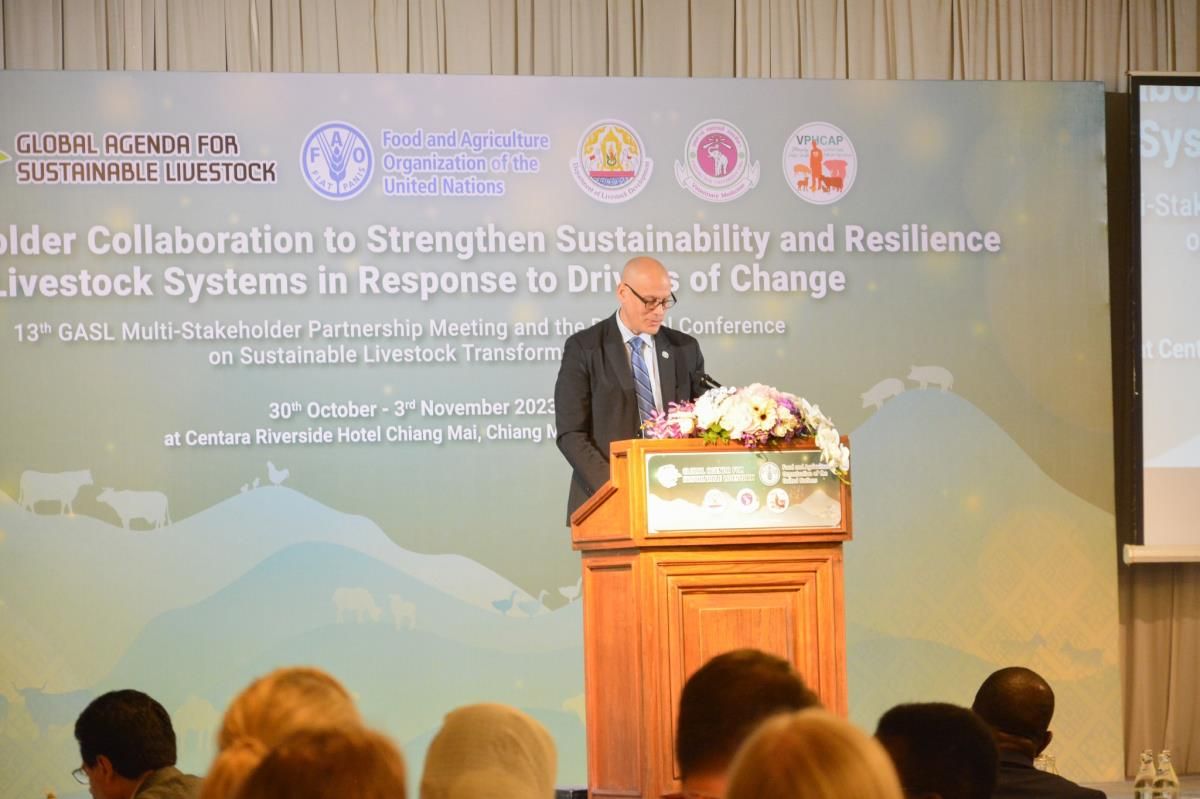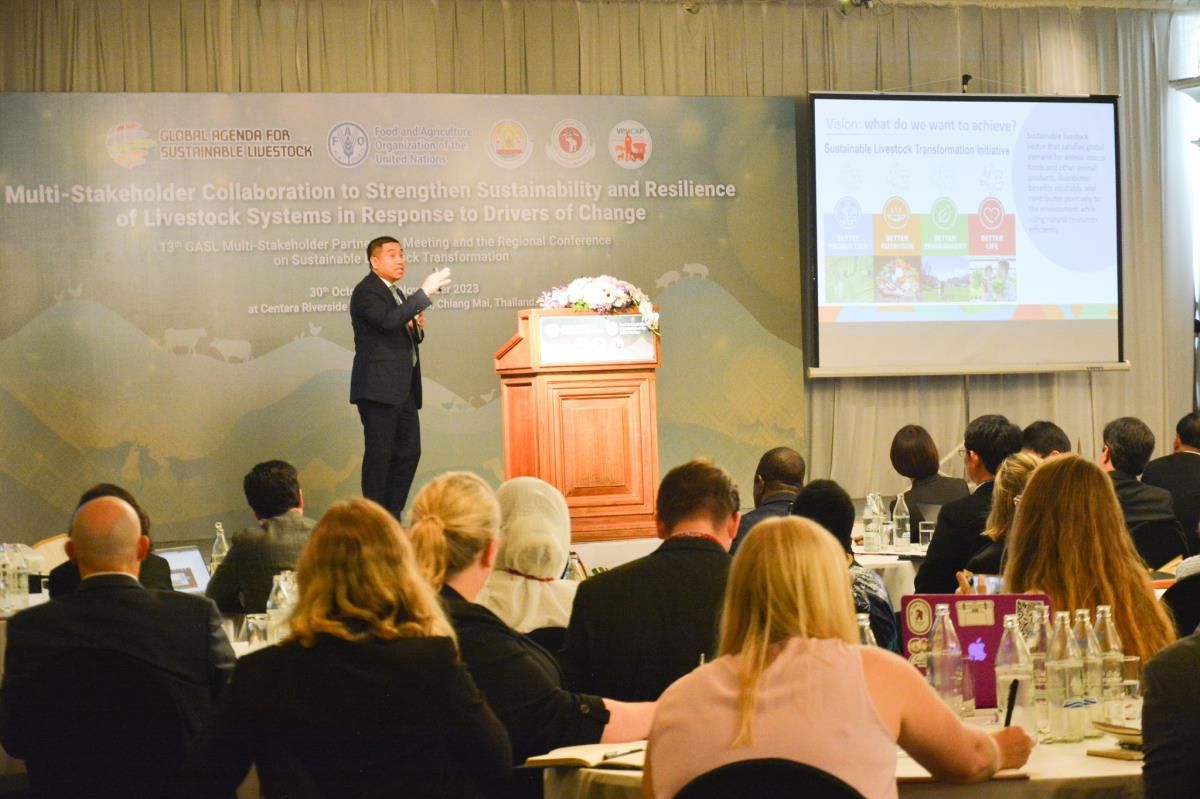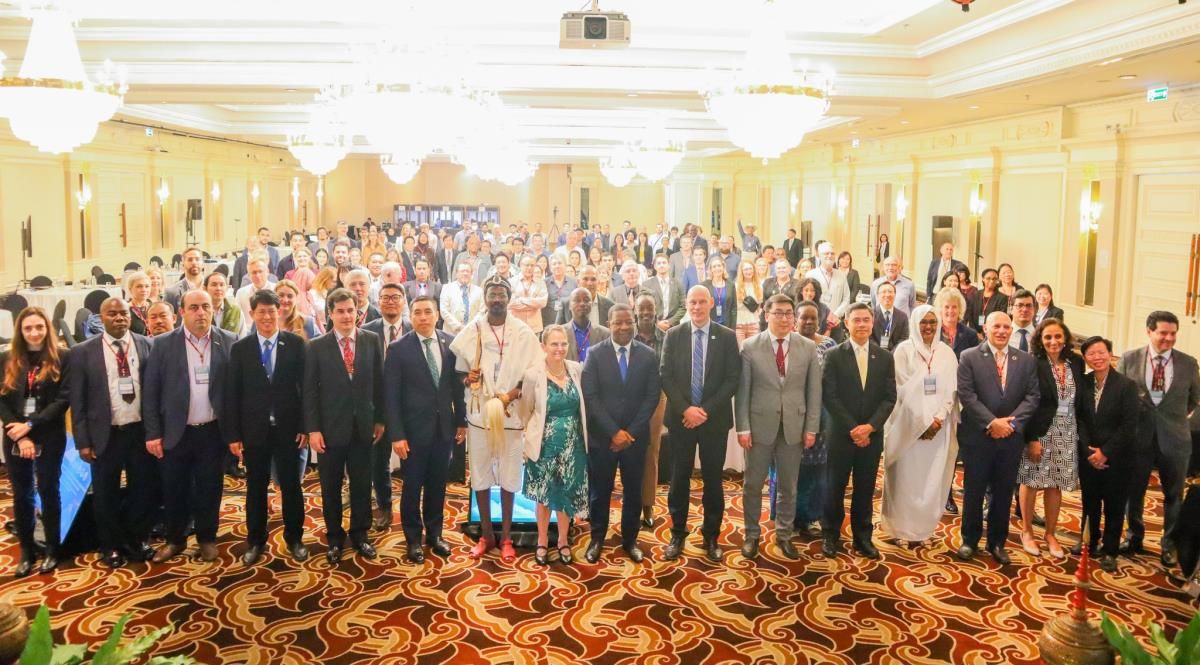
Background
The 13th Global Agenda for Sustainable Livestock (GASL) Multi-Stakeholder Partnership (MSP) Meeting and the Regional Conference on Sustainable Livestock Transformation were held from 30 October to 3 November 2023 in Chiang Mai, Thailand. The event was jointly organized by GASL, the Food and Agriculture Organization of the United Nations (FAO), the Department of Livestock Development of Thailand (DLD), and Chiang Mai University (CMU), with support from international and regional partners.
The overarching theme was “Strengthening Sustainability and Resilience of Livestock Systems in Response to Drivers of Change.” Discussions addressed four main domains:
-
Food and nutrition security
-
Socio-economic considerations
-
Health and disease
-
Environmental challenges
The conference drew more than 200 participants from 35 countries across five continents, including ministers, vice-ministers, policymakers, researchers, and private sector representatives
Opening Session
The welcoming remarks were delivered by:
-
Ms. Shirley Tarawali, GASL Chair
-
H.E. Mr. Chaiya Promma, Deputy Minister of Agriculture and Cooperatives, Thailand
-
Mr. Nirat Pongsitthaworn, Governor of Chiang Mai
-
Mr. Robert Simpson, FAO RAP
-
Mr. Sopat Chavalkul, DLD Thailand
-
Prof. Dr. Pongruk Sribanditmongkol, CMU President
Speakers highlighted the urgent need for sustainable and resilient livestock systems to address global challenges, including climate change, food insecurity, antimicrobial resistance, and shifting socio-economic conditions.
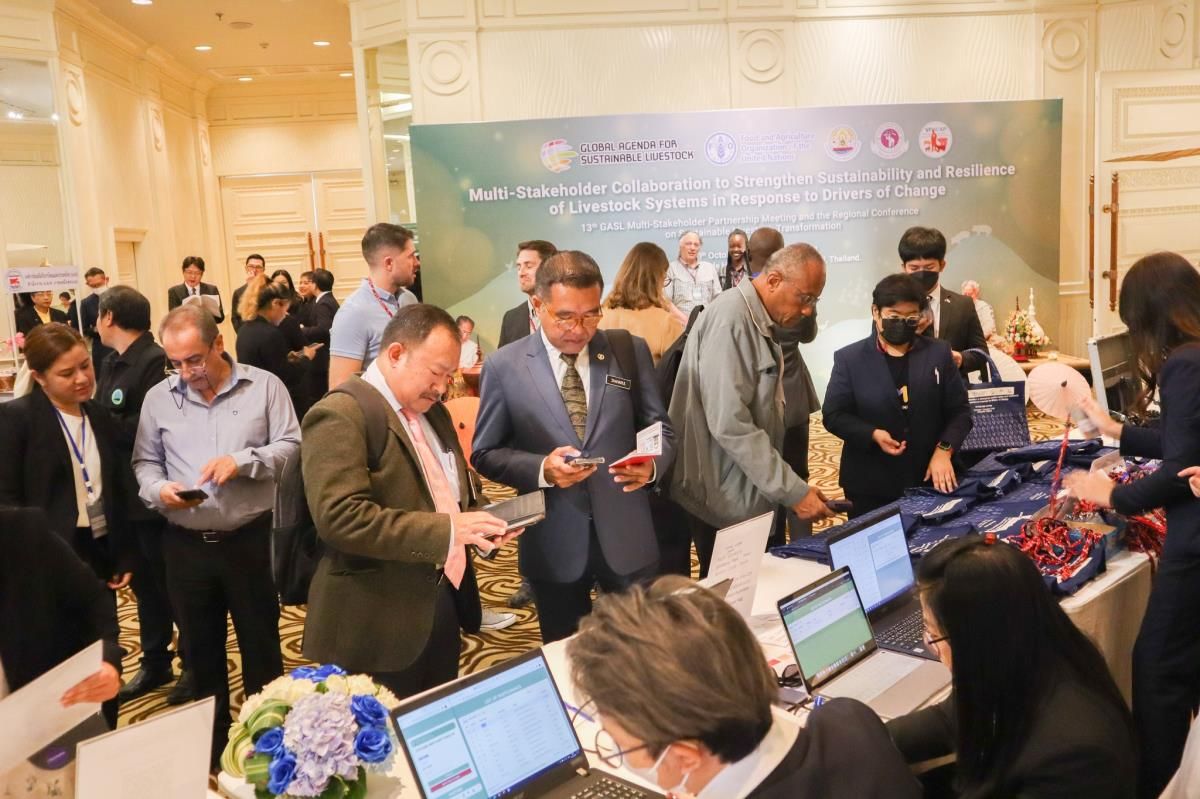
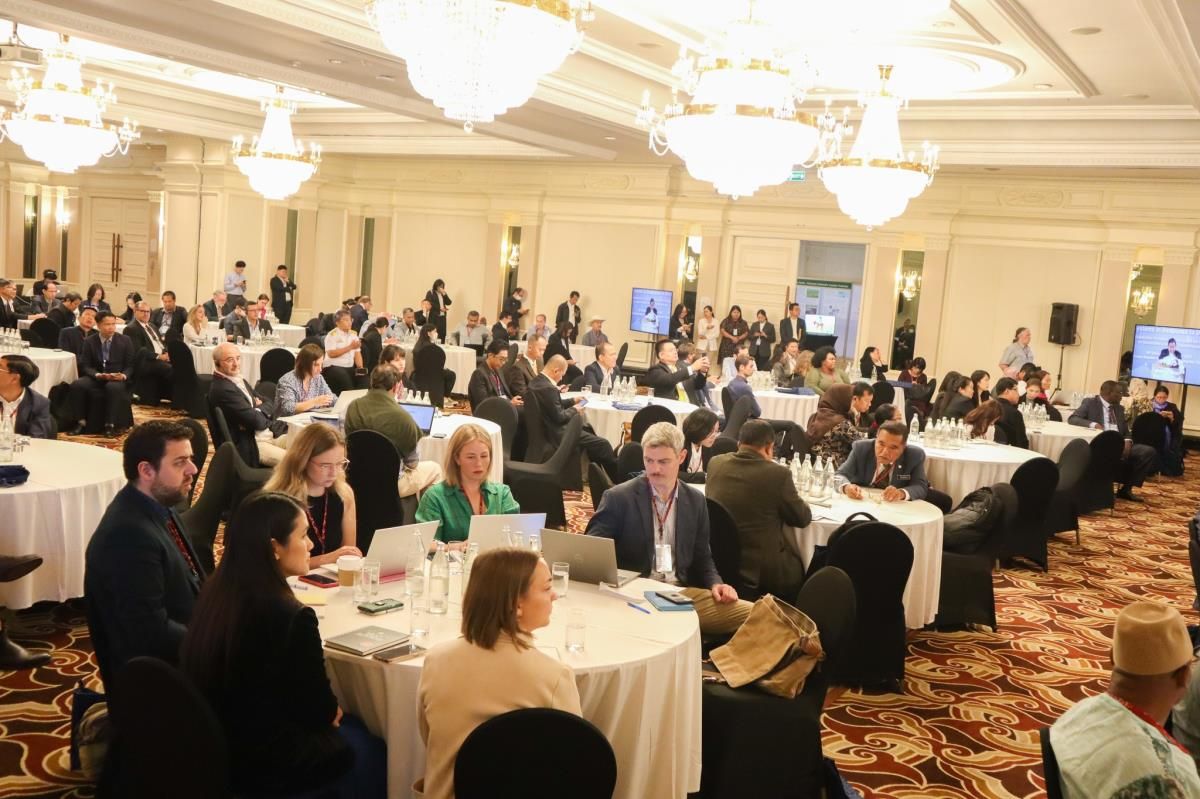
Keynote Themes
The keynote session framed discussions around drivers of change affecting livestock systems:
-
Geopolitical & socio-economic drivers – market volatility, trade policies, productivity, and equity challenges (Alejandro Acosta, FAO).
-
Health & disease drivers – biosecurity, antimicrobial resistance, emerging diseases, and the One Health approach (Madhur Dhingra, FAO).
-
Environmental drivers – climate change impacts, adaptation and mitigation, and climate finance opportunities (Muhammad Ibrahim, CATIE).
-
Innovation & knowledge drivers – biotechnology, digital tools, and productivity improvements (Alison Van Eenennaam, UC-Davis).
Ministerial Roundtable
Ministers and high-level representatives from Tanzania, Paraguay, Mongolia, Kenya (AU-IBAR), and Thailand shared national perspectives on climate change, trade, deforestation, livestock taxation, and the role of pastoralists. The roundtable stressed:
-
The importance of policy reform and legislation to reflect climate realities.
-
The value of public–private partnerships for scaling solutions.
-
The role of traditional pastoralist systems in ensuring food security and resilience.
Thematic Sessions & Policy Forum
Four main sessions examined drivers of change across regions, followed by integrated responses from GASL Action Networks and farmer organizations:
-
Session 1: Geopolitical & socio-economic drivers
-
Session 2: Health and disease drivers
-
Session 3: Environmental drivers
-
Session 4: Innovation and knowledge drivers
A Policy Forum brought together experts and policymakers to identify critical policies needed for sustainable livestock transformation, emphasizing climate-smart food systems, food safety, and inclusive participation.
Field Visits
Participants joined five field trips in Chiang Mai Province, visiting:
-
Dairy and egg farms
-
Cattle production sites
-
Chaiprakarn Dairy Cooperative
-
The Huai Hong Khrai Royal Development Study Center
These visits showcased practical applications of sustainable livestock practices, renewable energy use, and community engagement models.
Outcomes and Way Forward
The Chiang Mai meeting reaffirmed GASL’s role as a global knowledge-sharing platform and produced the following outcomes:
-
Recognition of multi-stakeholder partnerships as essential for addressing sustainability challenges.
-
Agreement on the need to scale innovations, improve governance, and ensure equity for smallholders and pastoralists.
-
Calls for investment in digital platforms to enhance knowledge exchange.
-
Commitments to strengthen regional networks, particularly in Asia and Africa, in advancing sustainable livestock systems.
